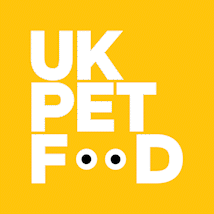Domestic birds can make wonderful pets for the whole family.
The food you provide for your indoor birds play a crucial role in their health, happiness, and overall well-being.
Our latest pet population statistics estimate that there are over 1.6 million pet birds in the UK (2024).
As well as being beautiful to look at, house birds are inquisitive and intelligent, with a great capacity for learning. They are highly sociable, eager to learn, and can develop strong bonds with their owners, making them a wonderfully rewarding and entertaining pet for the whole family.
General considerations for owning an indoor bird
Before adopting or purchasing a pet bird, consider the time, effort, and resources needed to meet their physical, social, and other welfare needs. Birds are intelligent and social creatures that thrive with proper care, attention, and stimulation. Ensuring their well-being involves providing a suitable environment, a balanced diet, regular cleaning, and ample interaction. Taking the time to understand their requirements beforehand can help ensure a happy and healthy life for your new feathered companion. Indoor birds can live long lives. Larger birds, such as the macaw, can live for 60 years or more, while smaller birds, such as budgies, can live for around 15 years, so they can be a significant and long term commitment for owners.
Nutrition & Diet
Making sure that your domestic bird gets an appropriate and balanced diet is important. It is also critical to ensure they don’t eat anything that might be dangerous or poisonous for them. Many bird species, that are kept as pets, would be seed eaters in the wild. However, seed alone will not provide your bird with the right balance of nutrients and energy they require. While some manufacturers of seed mixes will have supplement mixes added to their products to help improve the balance of nutrients in their products, it is still important for owners to ensure a balanced overall diet for their pets. Owners can receive reliable nutritional advice, ideally from an exotic-specialist vet, specific to their bird type, to provide them with an appropriate and balanced diet.
Click on the links below for some of our top tips to ensure your domestic bird is kept in a healthy condition. Veterinary professionals, particularly those vets and vet nurses with an interest in exotic pets, specialist pet food retailers and reputable bird food manufacturers can provide guidance on what to feed your pets.
Don't forget to keep your bird hydrated!
As for any other pets, birds need constant access to fresh clean drinking water from a suitable water drinker, available from pet shops. Water bowls/drinkers should be cleaned daily. Please see the following paragraph for more details.
Good Hygiene Practices
Food and water bowls or containers should be placed in a secure location to prevent faecal contamination. These containers should be emptied and cleaned daily using warm water and washing-up liquid, then thoroughly rinsed and dried before refilling with fresh food. For households with multiple birds, provide several food and water bowls in different locations to ensure all birds have easy access.
Weight management for indoor birds
Pet birds can get overweight or obese quickly if they are fed an inappropriate diet.

Owners should always follow the feeding guidelines on bird food packaging, as a starting point, and monitor their pet’s body condition score to achieve or remain a healthy weight. Make sure your birds have plenty of space and mental stimulation to stay active and fit. Please check our Body Condition Score Chart (Pet-Size-O-Meter) for birds and download or print it as a useful tool to monitor and track your bird’s body condition.


At UK Pet Food, we work with many pet nutrition experts who have helped us create useful posters, tools and resources to support the healthy weight management of pets.
We've created a dedicated 'Spotlight on Obesity' section to bring these tools together in one place, to help you on your weight management journey.


